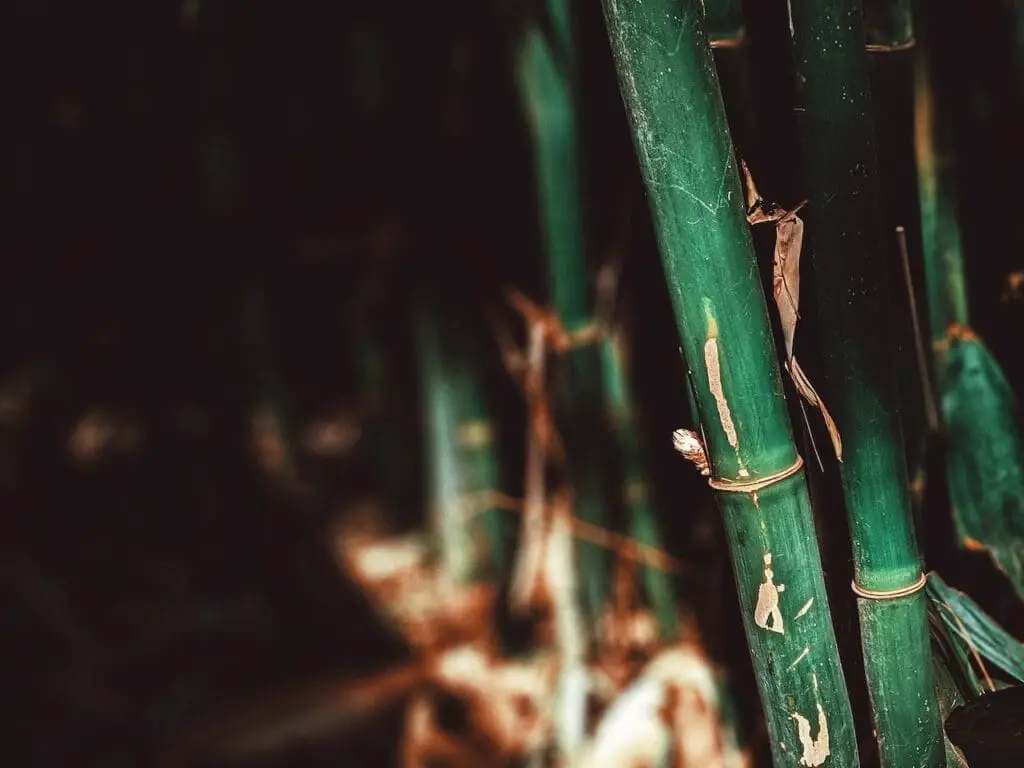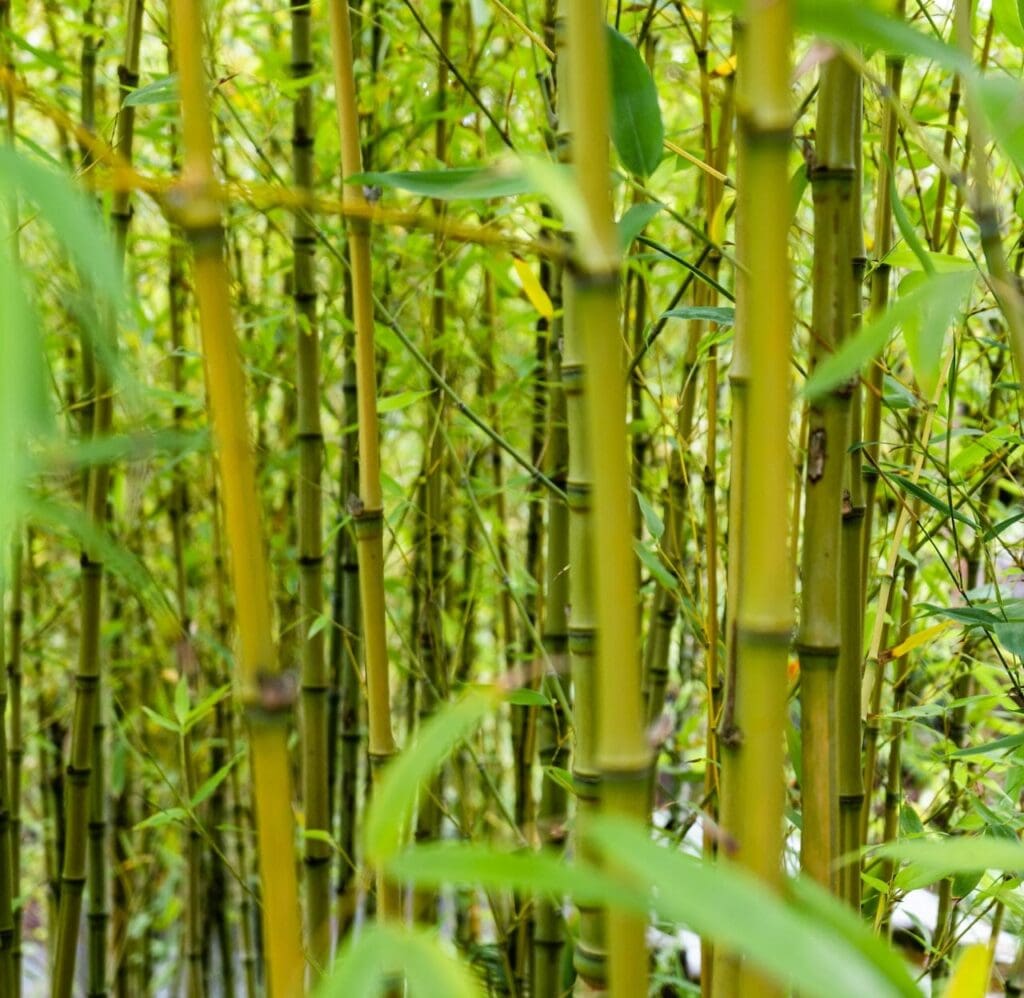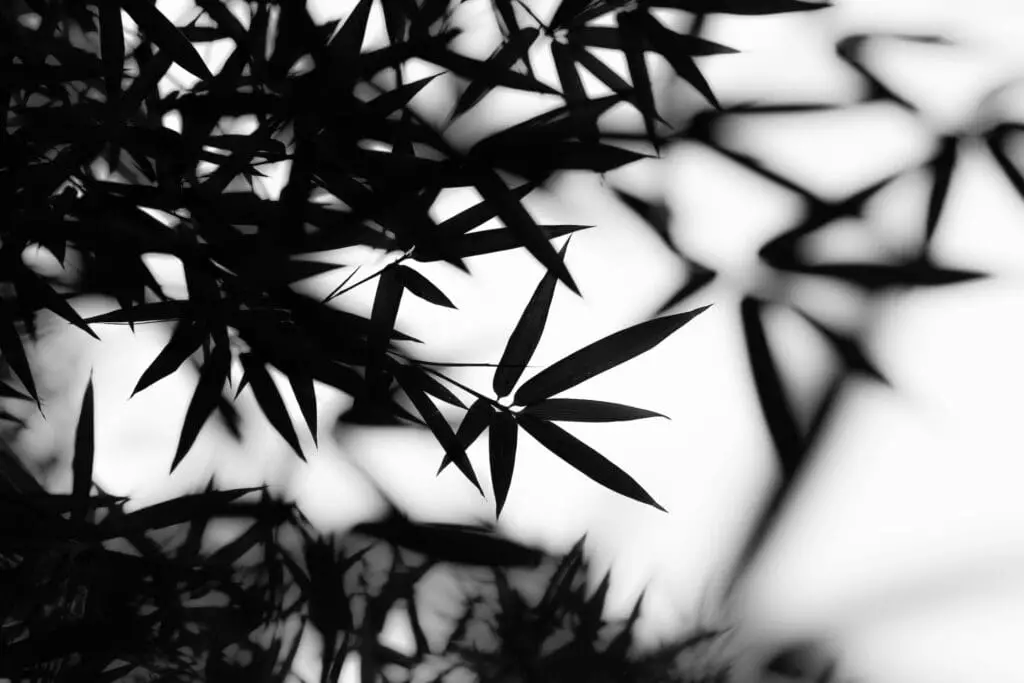Bamboo cultivation in Massachusetts poses various challenges due to factors like invasiveness, cold weather, soil conditions, pests, and regulations. However, with careful consideration and proper care, bamboo can flourish in the state. The key lies in selecting a non-invasive and cold-tolerant bamboo species while implementing effective containment measures.
Regular monitoring, soil testing, fertilization, pruning, and other management practices are important for healthy growth.
Key Takeaways
- Bamboo is not native to Massachusetts, but some species are well-suited to grow in New England, such as Fargesia robusta, a cold-tolerant species.
- Growing bamboo in Massachusetts comes with challenges such as risk of invasiveness as well as cold weather, soil conditions, pests, and regulations.
- Factors to consider when planting bamboo include soil type, climate, location, and personal preferences.
- Bamboo has various uses such as construction, tools, art, musical instruments, and textiles, making it a versatile and renewable resource.
Choosing a Suitable Bamboo Species
When considering growing bamboo in Massachusetts, it is crucial to choose a suitable bamboo species that can withstand the challenging climate and environmental conditions of the state. Bamboo species selection should prioritize cold hardy varieties that can survive the cold winters in Massachusetts. Fargesia robusta is one such species known for its ability to tolerate cold temperatures.
Another cold-tolerant bamboo species suitable for Massachusetts is Phyllostachys nigra, also known as Black Bamboo. This species is known for its striking black culms (stalks) and can tolerate temperatures as low as -20°F (-29°C). It is a hardy and adaptable bamboo species that can thrive in a variety of soil conditions and is relatively low-maintenance compared to other varieties. With proper care and protection, it can successfully withstand the harsh winters of Massachusetts and provide a beautiful addition to gardens and landscapes in the state.
Additionally, soil requirements must be taken into account when selecting a bamboo species. Bamboo grows best in fertile, moist, well-draining soil. Conducting a soil test before planting can help determine if any amendments are needed to meet these requirements.
Managing Bamboo Growth
To effectively control the growth of bamboo in Massachusetts, it is essential to implement strategies that address its invasive nature and potential spread. Here are three key strategies for managing bamboo growth:
- Pruning techniques: Regular pruning is necessary to maintain the desired shape and size of bamboo plants. This involves removing dead or damaged culms, thinning out crowded areas, and cutting back excessive growth. Pruning should be done during the dormant season to minimize stress on the plants.
- Pest control: Bamboo can be susceptible to pests such as bamboo mites. Regular monitoring is crucial to detect pest infestations early on. Treatment options may include insecticidal soaps or horticultural oils specifically formulated for controlling mites on bamboo.
- Bamboo propagation: Propagating bamboo can be done through division or stem cuttings. Division involves separating clumps into smaller sections, while stem cuttings involve taking a section of a culm and planting it in soil or water until roots develop. These methods allow for the expansion of your bamboo collection or replacement of older plants.
Care and Maintenance
Regular care and maintenance practices are essential for ensuring the health and vitality of a thriving bamboo ecosystem. Proper pruning techniques play a crucial role in maintaining bamboo plants. Regular thinning of culms helps to promote air circulation and prevent overcrowding, which can lead to disease and pest infestations. Additionally, removing dead or damaged culms helps to improve the overall appearance of the bamboo grove.

Pest control is another important aspect of caring for bamboo. Monitoring for pests such as bamboo mites is essential, as they can cause damage to the leaves and weaken the plant. Prompt action should be taken if any signs of pest infestation are detected, including using appropriate insecticides or natural remedies.
Watering is an integral part of maintaining healthy bamboo plants. While bamboo requires regular watering, it’s important not to overwater as this can lead to root rot. A watering schedule that allows for deep irrigation but also ensures proper drainage is recommended.
Benefits of Growing Bamboo
Bamboo is a versatile plant that can be used in a multitude of ways. In Massachusetts, bamboo can be utilized to create privacy screens and block unwanted views. Its tall culms and dense foliage provide excellent shade options for outdoor spaces. It can also help protect against strong winds by acting as a natural barrier.
Furthermore, bamboo serves as valuable habitat for various wildlife species. Its dense growth provides shelter and nesting opportunities for birds and small animals.
Aside from its practical benefits, bamboo is also an environmentally friendly resource. It grows quickly without the need for extensive maintenance or pesticides. This makes it an ideal choice for those looking to incorporate sustainable practices into their gardening or landscaping projects.
Controlling Bamboo Spread
One effective method to manage the spread of bamboo is by implementing physical barriers, such as buried plastic strips, which can help control the rhizomes and prevent them from spreading beyond desired boundaries.
These barriers preventing the rhizomes from spreading uncontrollably. The use of buried plastic strips, such as Vivak, is a common practice in controlling the invasiveness of bamboo.
By using these methods for containment, bamboo spread can be effectively controlled and managed within designated areas, allowing for its cultivation without causing invasiveness issues.
Recommended Bamboo Species
Phyllostachys aureosulcata, Phyllostachys bissetii, and Phyllostachys nuda are recommended bamboo species that thrive in the climate of Massachusetts. These bamboo species are suitable for cultivation techniques in the state and have proven to be successful options for landscaping and privacy fencing purposes.
Phyllostachys aureosulcata, also known as Yellow-groove Bamboo, is particularly reliable and well-adapted to the region. It can provide a tall and dense screen for privacy or serve as an attractive focal point in a garden setting.
Phyllostachys bissetii is another recommended species that offers similar qualities with its rapid growth rate and ability to form a dense hedge.
Phyllostachys nuda, commonly known as Naked Sheath Bamboo, is valued for its graceful appearance with smooth culms and delicate foliage.
There are also many clumping bamboo species suited to Massachussetts conditions



Clumping bamboo species are an excellent option for Massachusetts. Unlike running bamboos, which can spread aggressively through underground rhizomes, clumping bamboos grow in tight, non-invasive clumps. This makes them easier to manage and control. Some well-suited clumping bamboo species for Massachusetts include Fargesia robusta and Fargesia murielae. These varieties are known to thrive in the region’s colder temperatures, making them reliable choices for local gardeners and landscapers.
Frequently Asked Questions
Q: Can I grow bamboo in Massachusetts?
A: Yes, you can grow bamboo in Massachusetts.
Q: What are the best bamboo varieties to grow in Massachusetts?
A: The best bamboo varieties to grow in Massachusetts are cold-hardy bamboo species such as Phyllostachys nigra and Phyllostachys bissetii.
Q: Is bamboo suitable for the climate in Massachusetts?
A: Yes, bamboo is suitable for the climate in Massachusetts. It is a cold-hardy plant that can tolerate temperate climates.
Q: Can bamboo survive the cold winters in Massachusetts?
A: Yes, bamboo can survive the cold winters in Massachusetts. Cold-hardy bamboo species can withstand temperatures as low as -15 degrees Fahrenheit.
Q: How should I care for bamboo in Massachusetts during the winter?
A: During the winter, it is important to protect bamboo in Massachusetts by applying a layer of mulch around the base of the plant to insulate the roots.
Q: Can I grow tropical bamboo in Massachusetts?
A: It is not recommended to grow tropical bamboo in Massachusetts as it may not survive the cold winters. It is best to choose cold-hardy bamboo species that are suitable for the northeastern climate.
Conclusion
In conclusion, growing bamboo in Massachusetts can be a challenging endeavor due to various factors such as invasiveness, cold weather, soil conditions, pests, and regulations.
However, with careful consideration and proper care, it is possible for bamboo to thrive in the state. By selecting a non-invasive and cold-tolerant bamboo species and providing necessary care and maintenance practices, gardeners can enjoy the many benefits that bamboo offers.

